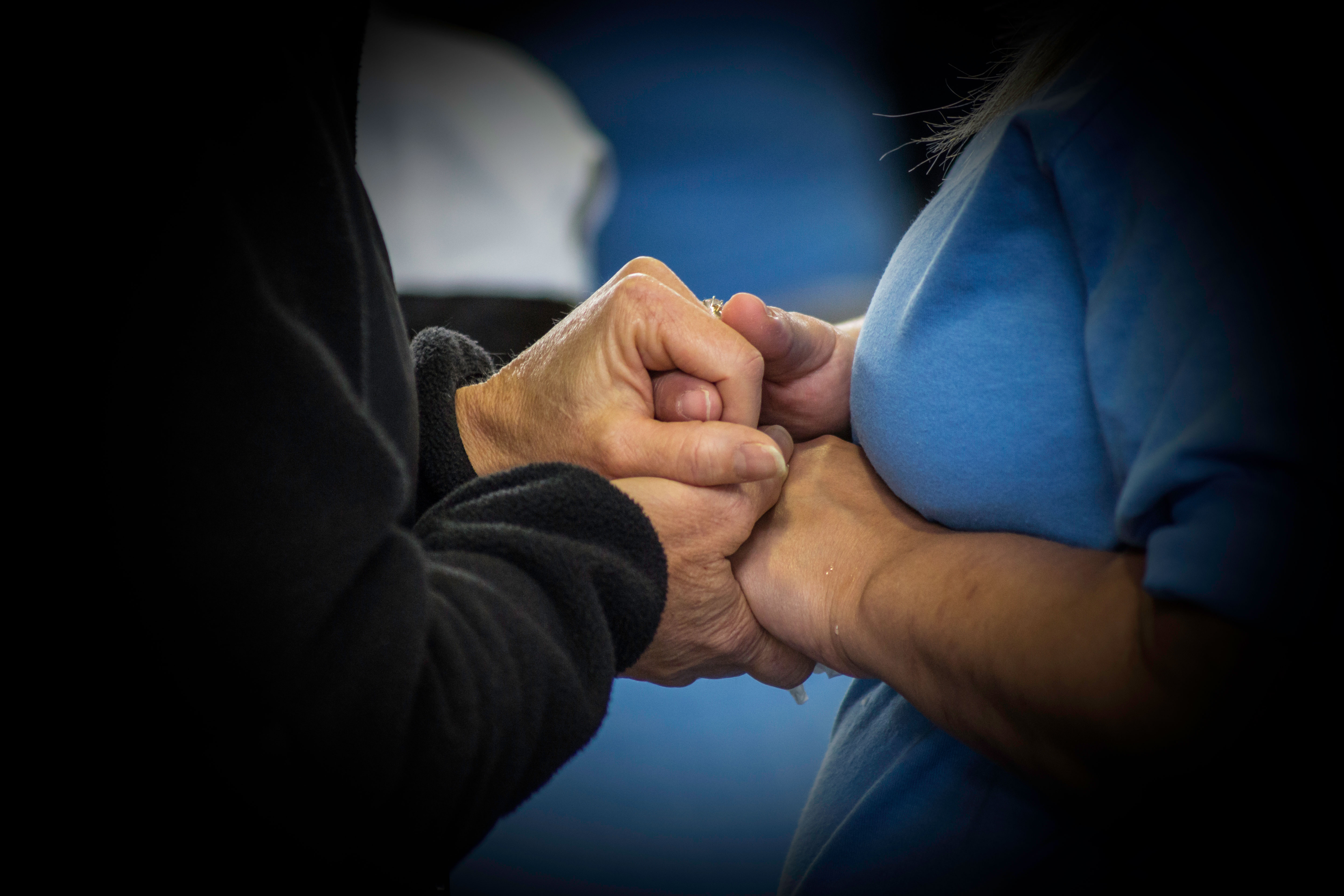As the Aging Prison Population Climbs, the Need for Prison Hospice Care Rises

Hospice care provides chronically or terminally ill patients with the chance to live their final days in comfort and with dignity. But what happens if a terminally ill person is incarcerated? Does prison hospice care even exist?
It's an important question. As a result of longer sentences, the number of prisoners over age 55 increased by 280% from 1999 to 2016. Some experts predict that 1 in 3 prisoners will be over 55 by 2030. There are also younger prisoners who suffer from chronic illnesses such as cancer, AIDS, liver damage, or other often fatal diseases. All of this adds up to more people spending their last days behind bars.
PRISON HOSPICE CARE IS NEEDED
Outside prison, hospice care patients often receive support from relatives, friends, and loved ones. Having support groups such as these help make patients more comfortable. They also allow for companionship and closure. However, terminally ill prisoners frequently do not have access to these same forms of support in their final days.
Several states do allow parole for certain prisoners in medical situations (see sidebar). And under the FIRST STEP Act, which Prison Fellowship® advocated for in 2018, compassionate release—or early release based on extraordinary or compelling circumstances like a terminal medical condition—became more accessible to some federal prisoners. But most of the nation's elderly or terminally ill prisoners are cared for in the handful of correctional centers (about 3.5%) that have on-site prison hospice programs.
One such program is at the California Medical Facility in Vacaville, a medium-security facility northeast of San Francisco. Vacaville's program was established as the nation's first licensed prison hospice in the early 90s during the AIDS crisis. Today, the facility is often considered the gold standard for in-prison hospice care. The program has 17 beds for eligible prisoners. Staff help patients with everything from pain management to taking a shower.
In some facilities with hospice programs, such as Minnesota Correctional Facility-Oak Park Heights and Louisiana State Penitentiary, families are allowed to visit their incarcerated loved ones, which resembles the community hospice model.
NOT WITHOUT ITS CHALLENGES
Joe Avila, the national director of special programs and Angel Tree Sports Clinic TM for Prison Fellowship®, worked in a prison hospice program while incarcerated. Avila explains that even if a prisoner gets into the prison hospice care program, they don't always have the traditional benefits of hospice, like family companionship. This is either because family members don’t have access, or because they have lost touch with loved ones.
"It's very lonely for [the hospice prisoner]," says Avila, remembering what he saw in the 1990s. "Family isn't let in until it's a day or hours before the person passes, and that's only if they have family. [Patients] get tended to as far as pain management and appropriate food, but it's very lonely."
Avila, who still remembers sitting at the bedsides of friends as they passed on, explains that the hospice ward is out of sight and out of mind even for most prisoners. "Nobody on the yard talks about it. Hospice is the prison's forgotten corner," he says.
THE BENEFITS OF CARE
Hospice benefits not just the prisoners who use the time to reflect on past mistakes and make amends but also the staff or other prisoners tending to them. "I listen to people's regrets, their stories, their happiness, their joy. I listen to their confessions," a former gang member named Fernando, who volunteers in Vacaville’s hospice while serving a 41-year sentence, told Reuters.
A 2011 report on palliative medicine suggests that incarcerated volunteers gain a new sense of purpose and psychological rehabilitation through end-of-life caregiving, which can lead to a more peaceful prison culture.
PRISON HOSPICE CARE BY THE NUMBERS
50: Number of states that have an obligation to provide medical care to individuals in prison, per Estelle v. Gamble.
>20%: Number of sentenced prisoners age 50 or older, as of 2017.
>150,000: Number of individuals in prison serving life sentences.
75: Approximate number of prisons with hospice programs (out of 2000 total prisons).
45: Number of states that have established medical parole in statute or regulation.*
17: Number of states that have geriatric parole laws in statute.*
16: Number of states that have both medical and geriatric parole legislatively.*
45: Approximate number of states that have compassionate release policies. (Prisoners may be eligible for early release on the grounds of extraordinary circumstances.)
*It should be noted, though, that very few cases of medical parole are actually granted.
The report points out, however, that pain management and trust are two barriers to optimum in-prison hospice care. Many doctors and nurses are cautious about dispensing pain medication in a place where drug use is rampant, and many prisoners have trouble trusting authority figures—even doctors and nurses.
A DIGNIFIED END
If these barriers can be overcome, hospice can serve as a great restorative tool. Prison hospice care has been shown to benefit the patient both physically and spiritually, even bringing some to find remorse for their actions.
"For the person who's dying, their last hope for human connection or visitation is another prisoner, or maybe a chaplain," says Avila. Avila often used his time in the prison hospice ward to share how he had found Jesus while behind bars. The sense of connection people crave can be very healing, especially during the often-frightening final days.

PROVIDE HOPE AND COMFORT TO PRISONERS WITH INSIDE JOURNAL
Prison Fellowship's Inside Journal® is widely distributed nationwide—including to medical units—and is a source of hope and comfort to those who might be too ill to participate in other programs.
Check out our past issues of Inside Journal. If you know someone in prison, we encourage you to print out and mail a copy of Inside Journal as a source of encouragement, information, and inspiration.
Chaplains and prison ministry volunteers may also subscribe for FREE bulk shipments.
DID YOU ENJOY THIS ARTICLE?
Make sure you don' t miss out on any of our helpful articles and incredible transformation stories! Sign up to receive our weekly newsletter, and you' ll get great content delivered directly to your inbox.
Your privacy is safe with us. We will never sell, trade, or share your personal information.